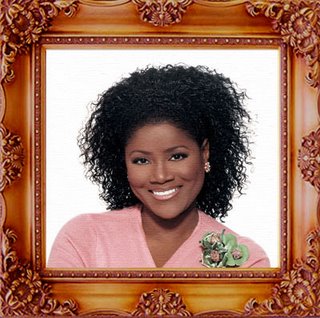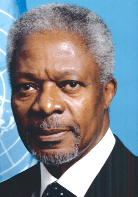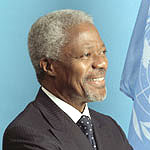Wednesday, January 31, 2007
The first story that I was going to work on at Radio Univers was not certain, nor was who I would be working with. After a few meetings with the station management, I was told that I would be working with Franklyn. He is in his second year at the University of Ghana and in his second year with Radio Univers.
As is the case with most of the people involved with the station, he does not have training in journalism or broadcasting. As is also the case with most of the people at the station, he is also involved with most of the areas in the stations operations.
When we sat down together, we went over a list of possible subjects that we could investigate. The first subject that he was drawn to was that of street children. While I have heard of areas where street children are a major issue in Accra, I really didn’t know a great deal about the problem, what areas where street children are prevalent, or who we should contact.
That was a good chance to conduct an informal workshop on research, as we were really starting with nothing but a topic.
Our first step was to go online to find articles and contacts. We came across various government agencies and NGO’s. We also found a cross-section of formal and informal documents covering the subject. After reviewing what we had found and pursuing our leads, we were on our way to Catholic Action for Street Children’s main office, which is a multi-purpose community centre and training facility for street children, assisting them in a transition from life on the street to a life of empowerment.
Our interviews were with the director, staff and volunteers, and with some of the children.
One young boy named Charles is stuck in my memory of that day. While a lot of the boys were busy with activities from carving, reading, crafts, table tennis, or eating, he was sitting on a bench doing nothing form the time we got there until the time that we were about to leave.
I began to speak with Charles about school and some of his plans. I asked why he was sitting with everyone that was doing carving, and wasn’t also carving. He told me that he didn’t know how. I then asked him why he doesn’t learn. He told me that he wanted to learn the craft after he finished JSS (the level of schooling that he was in). I tried to understand why he needed to wait to learn to carve, as he really wasn’t doing anything else.
I then remembered a comment from a few of the people working at the facility. They mentioned that there was now a generation that had been born on the street as the children of street children. They described a particular challenge with many of these children, as they don’t know a different life and often don’t want to do anything. Even with games and sports, the staff said that, "they just prefer to sit around all day and hang-out".
I encouraged Charles to try the carving. At the very least, I got him to smile.
As we left, we got into a taxi and headed into central Accra to follow-up on a vague announcement that the National Theatre had a play running that week called “Streetism”. We really weren’t sure whether it had anything to do with street children, but it was worth checking out.
On the way, while in the taxi, an unfamiliar song came onto the radio with the familiar voice of Atlanta Emcee Ludacris. As the first verse began he started to describe a young girl at the age of 9 who was being beaten by a step parent, and had run away from home. The second verse spoke of a the year old that had been raped and also left home. The third verse spoke of an eleven year old girl, with alcoholism and no love at home, who fell into the allure of the streets. As we listened to the song, it echoed the main reasons children leave home as was laid out to us in our interviews by workers that had been involved with children in the streets of Accra for the last 15 years.
Leaving the taxi, and moving towards the theatre, we saw a young girl sitting under a tree, beside the road with a small baby.
Franklyn then turned to me and told me, “you are making me see my city in a different way”. He continued, “I always see street children, but I never thought about their lives or their stories. I never thought of why they are there”.
As was learning as much as him and knew as little as he did coming into. With that said, I felt a certain peace.
Back in July when I was involved with the JHR orientation, I was shown an info video. On the video there was a Ghanaian journalist that made a comment about the role of JHR: she said something about it all boiling down to telling people’s stories. She said that if you can share someone’s story, then people will feel it and that will make the biggest difference.
That was a guiding perspective for me coming into a line of work that was so unique. I really just wanted to work with journalists and facilitate the communication of people’s stories; to see the stories that are really everywhere you look, and sharing them with our audiences.
Walking down the street with Franklyn, I was seeing the fulfillment of the words of that woman, which had resonated in me as being true.
Oh, turned out that the play was about street children...talk about timing.
Tuesday, January 30, 2007
Grandma
Last Sunday, after church, I had an engagement to attend to. I was to head to circle to meet Anokye and go see ‘the old lady’, as her calls her.
I call her Nana’s Grandma. While I was in second year at
Over the course of the year, we got to know each other better. Aside from a shared interest in great writers, and our mutual English major status, we had a few other connections. She was on the
I can still remember that day quite clearly. I was put with two of the teams more committed athletes to join in with their practice. The thing was that they had been training all season and were preparing for the final competitions of the OU’s (
For the next two hours, we stretched, jogged, and then ran. The running was serious. There were times that I was not sure if I could continue, but I did. By the end, I had kept up with them. The coach told me to come out to the try-outs at the beginning of the next season, and recommended some training over the summer.
The next season, I joined the team. While the practices were plentiful (minimum of six hours a week, and up to 15 hours a week), I remember that time fondly. Having that outlet also helped me get through a very difficult year, boosted my confidence and opened the door to some great friendships.
During that time, I was still very involved in the music industry. Hosting a radio show that I co-founded, doing interviews with Hip Hop heavyweights for various publications, and attending almost every concert and event worth mentioning in the city fueled my absorption in the music.
One evening, sitting on the stairs that face my front door, I was on the phone with Nana in a rare conversation. We didn’t speak often. We were speaking about Hip Hop and music from a spiritual perspective. I remember her giving me a ‘what if’ situation.
She said, “what if God himself came to you and said, ‘I want you to speak to my people’, would you do it?”. She then asked me, “what if He told you that ‘I need you to have a clear mind and heart, filled with my word and my ways’, would you do it?”. Not knowing where she was taking this conversation, I visualized what she was speaking about and I really thought about it. If God spoke to me and wanted me to do something, how could I say ‘no’. I told her, that I would. She then told me, “He has already asked you to do that”.
While that conversation got me thinking about the music I listen to on a different level, I continued to be quite involved in the music for some time after that. Still, the thought stayed with me: I could feel the truth of what she had said, that God had called me for more. I have always been someone that listened to lyrics closely, but I gradually was seeing what was being said in a different light.
There is one more memory of Nana that is relevant at this point, which is of a photo that I saw of her while I was speaking with her on MSN. She had put a photo taken of her sitting at a table, eating, while she had been visiting
When I was coming to
Anokye is one of those contacts. And ‘the old lady’ is her grandmother. In my first weeks in
My first visit was in August. After that, I was in Tamale for a few months. When I came back down, I had planned to visit again. While it took a few weeks and a couple of botched dates to arrange, it finally happened last Sunday.
I met Anokye at Circle, I bought a loaf of bread, and we headed to see ‘the old lady’.
When I arrived, she was in her room getting ready. Being quite aged, she took a little while to come out. When she emerged with her walker from her bedroom into the living room where I was sitting, she was dressed in matching blue and silver clothing from head to toe, including a silk headscarf. As she welcomed me, she continued to push through the door using her walker to make small steps, and, with Anokye’s assistance, took her seat to talk.
Our initial small talk about how we were feeling and how the day was took place in English. Once the questions and answers got more detailed, we began to rely on Anokye to translate between the both of us.
As she spoke, I noticed a tone of blue in her brown eyes that matched her outfit. Visibly delighted to have a visitor, the round peak of her high cheek bones looked like two full moons in the same sky.
She told me that she is sad sometimes, as she is old and often feels very tired.
As I sat with her, I also thought of my own Grandmother: not because of her age or her condition, but because of my fondness for my Grandmother, and the warmth that this woman was emitting into my core.
Earlier that afternoon, while waiting to meet Anokye, I had gone to an internet café to check my email. That morning, I had only one personal email which was from my Mother. She was informing me of a few family matters including news that there was a change in plans regarding an upcoming surgery that my Grandmother was to udergo, and that this change was due to new revelations about her condition.
My Grandmother means so much to me, so the news was concerning. I was not worried, as I know that she is in God’s wonderfully blessed and graceful hand, yet I felt the weight of the situation.
In my heart, there were deep and slowly stirring emotions; I could feel the importance of taking some time to sit with her, I could feel my own Grandmother also.
I asked Nana’s Grandmother, what advice she has for life.
She said, “you have to try and work harder”.
“You have to work hard”.
“And God first. Go to church and love God and pray”.
She told me, “do good and pray. Don’t worry about things. God is merciful to his children. Trust Him and He will bless the work of your hands. Try harder and pray, and he will bless you”.
She also shared with me some things about herself. “I was the happiest at 50. I had a good family, and faith, and I was enjoying life. Now, I am tired. Life goes by fast. Keep God first”.
I sat with her for a bit longer before Anokye suggested that we get going.
I agreed, and after looking for her approval of our decision, I stepped across the room the greet her and tell her that I would come to visit her again. As I looked in her eyes and smiled, she took my hand that she was holding in hers and kissed it.
I thanked her for having me, and headed out of the door with Anokye. As we walked through the potholes of the tan dirt road, to the main junction, I was reflective. I shared with Anokye the news about my own Grandmother. I commented to him about the timing of seeing that email right before I was going to see Nana’s Grandma.
At first he was concerned and asked me why I hadn’t said something earlier.
“We would have prayed for her, the old lady is good with prayer. When she prays, it happens”.
He then offered advice, saying, “Don’t worry, everything is going to be good”. I told him that I wasn’t worried.
I had been visiting Nana’s Grandma, and I wondered if there was someone in
He then commented that, “God will bless you for what you have done”. He words were true, except he had already blessed me.
Anokye then revealed something else to me: “when you came the first time, it was nice, but I didn’t think that you would come again”. He continued, “You could have said, ‘I visited her Grandma’, and left it at that. You didn’t though. You came again”.
Sitting there and hearing her advice was a blessing. Being able to make a difference in her day and bring her a smile was a blessing. Being an ocean away from my own Grandma who needs the love and support of her family, but being able to sit with a Grandma, was a blessing.
Thinking about both of my Grandmothers, my many adopted Grandmothers, thinking of Nana’s Grandmother, I have to say, Grandmother’s are a blessing.
Saturday, January 27, 2007
MY TOE: NOT FOR THE SQUEMISH
A few weeks ago, I realized that I had an in-grown toenail. It’s happened to me once before, but it was a fairly easy procedure. Having had some bad experiences with doctor’s, I was hesitant to get help with this issue.
Finally, I decided I would go to the Nyaho Clinic, a private hospital, where I had gotten treatment back in September. To my disappointment, the doctor did not know what she was talking about. She could not tell what was wrong with my toe, even though I told her that I had an in-grown toenail. She also told me that they would put my pinky toe, which seemed to have a slight fracture into a cast. That concerned me as I fractured a toe before and was told that they don’t put toes into casts.
I decided to leave. I was supposed to go back to see a specialist, but that was not comforting.
Then, thank God, I went to see Tamara at her uncle’s house. Dr. Loko, who I had met on Christmas, was taking Tamara and Tania out to dinner. Whne he came, he agreed to look at my toe. Immediately, he knew the problem and the solution, and asked me to soak it daily in salt water to keep the infection down.
Two weeks later, Friday, January 26th, I met him at his house and went with him to the hospital. I had thought that he might make a small incision and address the problem. Not so.
He brought me into the operating room, after I had been instructed to change into a hospital gown. Laying on the operating table, he took a long needle and injected my toe with a liquid that made the toe numb. Previously, even the slightest nudge was painful. The night before, I was dreaming that I was playing soccer; going for a ball, and I swung my leg in my sleep and slammed my toe against a wooden chair – the pain pulsed through my body.
After having the needle, I could not even feel the toe.
Dr. Loko then began to make incisions. He cut some of the skin, he cut the toe nail. He then made another incision, and began to slice some part deeper down, which seemed to be a bone, but I think was the root of the nail. I had been lying down at first, but lifted my head to see what he was doing.
As I watched the operation, with the incisions and gushing blood, I thought of a few movies. I thought of Syrianna where there is a seen of a man having his fingernails removed through torture. I then thought of The Passion of The Christ. I also thought of Braveheart and the words of William Wallace he refused to swallow a potion that would numb his pain, saying, “I want to have my wits”. I tried to imagine how such an operation would be possible had my toe not been numb.
When it was all done, and the medication began to wear off, the pain began to hit me. Due to the nature of the incisions, I needed to be heavily bandaged. After relaxing at the hospital for awhile, and then being dropped part of the way home by Dr. Loko, I made it the rest of the way with one foot in a shoe and one in a flip flop. As I slowly limped along, many people came to me to tell me “sorry” and “brother, are you okay?”. Eventually, I made it home.
That night, I took my painkillers, but opted to risk waking up in pain over having to insert a pill into my rectum. It’s just not something that I thought was worth doing.
Thankfully, with God’s grace and so many people praying for me, I have no pain today. I am staying at home for the weekend to rest, and I will get re-bandaged on Monday.
Pan-African Praise
On Saturday, I had a feeling that I should go to Action the next day. That church is one of the mega-churches in
On Sunday morning, while heading to the church, I was thinking about the bookstore at the church that I still hadn’t had a chance to check out. I was thinking about finding a book from Juanita Bynum that I had seen around.
Having gone alone, I thought that it was interesting that I happened to be sitting beside a woman that had met in Sakumono. Over the course of the next couple of hours, I enjoyed the service. Then it came – the reason that I had come to Action that morning. At the end of the service they made an announcement that Juanita Bynum would be coming to
It was information that took a little while to sink in. I wasn’t going to set my expectations in stone, but there was a good chance that I was going to see Juanita Bynum, in
On Tuesday, I met up with a friend, Laria, from the church that I attended in Tamale to go for lunch. After eating and heading out of Osu, I remembered that a friend had told me of a bookstore in the area that had a book that her sister had written. I asked Laria if she wanted to look for the store. After asking a few people, we were directed to a Christian book store (which was not the place that we were looking for). While browsing in there, we saw a few materials from Juanita Bynum. The woman running the store decided to show us a few of them and we watched one that had Juanita Bynum’s wedding on it. It really was amazing, and full of lessons that had an impact on me. I then decided to buy a DVD that had an early message of hers called “No More Sheets”.
I watched it that very evening and it spoke so deeply to me, it was incredible. The three revelations were of the way that we be single without being single (which is not being in a relationship, but still not being free from past relationships), that we need to prepare for our future faithfully instead of longing for it, and I realized that (even though I registered a business last year) that I was afraid to pursue my goals.
Though the video was quite a number of years old, in a couple of days I would be seeing her in person.
That Thursday morning, I arrived at what is called The Jericho Hour at 9am. After about two hours, the service was still going on and Juanita Bynum had not arrived. I had come to find out that she was not actually in the country to be preaching, but she had been invited to be honoured with the position of Goodwill Amnbassador to
At that point, about two hours into the service, I had a feeling to go outside and call a friend of mine who still had not arrived. I had been wondering where she was, as I was holding a seat in a building that was completely full from one side to the other. The huge factory sized structure was excited and glowing with praise. I stepped out to make the call, then decided to lean on a railing that faced the road. Just as I did that, I saw an entourage begin to move towards the building. Within two minutes, the entourage passed right in front of where I was standing, and there I saw Juanita Bynum walking into the building. They had been conducting a ground breaking ceremony for the University/College that Action is planning to build. As Juanita walked, there seemed to be a combination of a determined focus and a regal protocol determining the care she took with each step. She walked as the nucleus of a bulging entourage of about 75 people, passing a growing crowd without needing to accommodate a single step to the people surrounding her, and without having her attention drawn to anyone.
As they entered the building, I followed and went to take my seat. They continued, parting the thick crowd with surprising ease. When she arrived on the stage, the already energetic atmosphere became exhilarating.
After an introduction from the churches Archbishop, who was making his first appearance in the building of 2007, she took the microphone and began to sing.
She offered the slow, but strong, chorus, “To God be the glory. To God be the glory. To God be the glory”.
She then began to speak:
Praise the Lord everybody. Praise the Lord everybody.
I am honoured and overwhelmed for all that the Lord has done in my life, for my life and also to my life. When I met the Bishop we automatically had a connection because I believe someone had told him about my prayer. But I wanted to give you the history.
I started praying at 5 in the mornings. The Lord would wake me up and I would just sort of file into the basement to pray. One morning he said to me, ‘I want you to greet me as if you are greeting a date’. And so I would get up in the morning at 5 o’clock and would get completely dressed. And I would go into my basement, and I started praying. And at first it became a choir because I just didn’t know where God was trying to take me, because I was born and raised in the traditional church. (insert 3”53)
I was in the basement one morning and I was praying and I didn’t feel like I was getting the breakthrough that I wanted - and this is going to bless you – and the spirit of the Lord said to me, ‘I want you to pray for the God of Africa’. And I said to the Lord, ‘well, what does that mean?’. And he began to remind me that the first time that the traditional churches in America began to hear about blinded eyes being opened, and the dead being raised, and limbs growing, and deaf ears coming open was from people coming from Africa.
I decided that I did not want the God of America anymore, I wanted the God that opens blinded eyes, the God that causes the lame to walk. I wanted the God that causes limbs to grow back.
I began to pray. I began to seek the Lord. For years I prayed in the basement and I said, ‘God, I gotta have that presence’. I said, ‘whatever it is that those people have’, I said, ‘I’ve got to have the power of God on my life like that’. And let me tell you something: don’t fool yourselves, and don’t let no one from
When I say that you are a mighty people, it’s because I know a people that in a shout the blind can see … when you raise your voice and shout.
Never mess with the person that prays. Never mess with the person that prays. Because the person that prays has the heart of God, the person that prays can stop a demon in it’s tracks. The person that prays can uproot spiritual
No weapon that’s formed against you can prosper.
I prayed and I said ‘God, I want the God of Africa’. When I began to pray that prayer, let me tell you the opposition that I ran into, because my praise changed. I didn’t have a little cute praise anymore. I wasn’t worried about my hairstyle and my makeup, I was shouting when there was no shouting music. I wonder if somebody knows what that means. I began shouting and dancing with no shouting music. I started yelling and nobody’s listening. I started running around the church, and they started saying that woman has lost her mind.
So, they said, ‘she’s crazy’. They said, ‘she’s crazy’. They said, ‘that lady is a lunatic’. And I would listen to the Spirit of God, and whatever he would tell me to do, I would do. I would grab sheets and I would pray with sheets, and I would wear white, and they said that lady was crazy. But, I used to be that lady that sits in the front row like many of you, and I kept praying and when God empowered me with what I call the spirit of
The first time that I came to
I prayed, and when I came here, it changed my life forever, because I knew at that moment that I wasn’t strange. I knew at that moment that I wasn’t crazy. And when I my brothers and my sisters praising God the way I praise God, when I saw them sing the way I sing, when I saw them shout the way I shout…
For the next sixty seconds I want you to shout to God.
I love you
With that, she stepped off the back of the altar as the entourage re-assembled around her and she was headed to “The Castle” for a meeting with President Kufor.
REASSEMBLING BROKEN DREAMS
On Tuesday, January 23rd, the former UN General Secretary was welcomed by hundreds of Ghanaians, including President Kufor who insisted that he be the first to greet him. The landing was televised nationally. Throughout the countries major cities, billboards with the background of the flags of
Within 48 hours of his arrival home, Kofi Annan was to offer a lecture as the kick-off to a series that would take place throughout 2007, the 50th anniversary of
The speech, focusing on the subjects of peace, development, and human rights was given before an auditorium of 1500 invitees, as well as being broadcast live across the country.
With a calm elegance, and tinges of what seem to be an introverted personality, Kofi Annan moved through his viewpoint of the continent from the initial wave that brought on the independence movement and Pan-Africanist ideals, to a well selected list of facts and figures presenting the challenges and potential for Africa in an optimistic light.
He described the aura of possibility that lit
As he connected figures such as a 5000 percent growth in cell usage in Africa, the reliance in imports placing the continent as the only region on the planet unable to feed itself, the effect of the arbitrary marking of national borders, and the movement to ostracize leaders and states that seized power through military means, he provided a portrait of Africa as he sees it, and the Africa that he is now returning to.
Of particular interest was his insistence that many African countries are on target to meet many of the Millenium Development goals set by the United Nations to reduce such issues as HIV/AIDS, mother/infant mortality, and extreme poverty globally. His review was boldly in contrast with the assessment offered by most stakeholders, whose voice is well represented in Stephen Lewis’ book, Race Against Time.
While introducing the invited speaker, Professor Daniel Adzei-Bekoe moved through a chronology of Kofi Annan’s experiences and accolades. He detailed his birth just outside of
The evening was focused on his Nobel Peace Prize for “increasing peace on the planet”, his raising the profile of the United Nations, his role in the attention being paid to the HIV/AIDS epidemic, and the extension of a second term, which actually required a bending of the rules as testament to the magnitude of his impact at the helm of the UN. However, critics of Kofi Annan have two major charges against him: twice failing to act in the face of genocide and facilitating corruption and abuse of office.
In the upper-echelon posts held prior to his appointment as General Secretary, his office stopped UN forces from intervening in clear threats to citizens in
Responding to a request to take action by Canadian ex-General Roméo Dallaire who was in
In retrospect, he has said, “I believed at that time I was doing my best. But I realised after the genocide there was more I could have and should have done to sound the alarm and rally support”.
As for the second charge, the list includes sexual assault accusations against a senior UN official in the Congo who was found guilty through proceedings and then cleared by Annan, a large contract being awarded to a company that his son was a partner with (though Annan publicly condemned his son for not being honest about his relationship with the company), and a cobweb of controversy yet to be fully unveiled that saw Sadam Hussein pocket an estimated 21 Billion dollars through what has been called the Oil-For-Food ‘Scandal’, rather than ‘Programme’.
Facing his own past he offers, "I admit that I have made mistakes, maybe, in retrospect, some of the people who were put in certain positions were not ideally suited."
In his final year of office he was unable to stop a ‘war’ in Iraq that he called “illegal” and watched it spiral into planet’s most turbulent warzone, he a siege on southern Lebannon by Israel that he sought to stop for almost forty days which decimated that section of the country and included a bombing on a building declared a UN safety zone, and the continuation of a genocide in Sudan that the globe continues to observe out of respect for Sudan’s “national sovereignty”.
With the facts on the table, one needs to consider the magnitude of the responsibility placed on the shoulders of the UN General Secretary – a burden of expectation dramatically pronounced in the case of Kofi Annan. He was placed at the helm of the global body of the UN in an age ‘of wars and rumors of wars’. His accomplishments have been celebrated, while his mistakes in some cases are clear, and in other cases his innocence is uncertain. Yet, demanding that one makes all of the right decisions in an organization of that magnitude, on the complex home that is our globe seems a bit absurd.
Kofi Annan is not a villain; he also may not be a saint. He was hired, heralded and condemned for his skill at finding compromise. A portion of the criticism is also more telling of the flaws in the UN system, than of a lack of will or awareness on his part.
In his exit speech given on December 11th, 2006, Kofi Annan listed the five lessons that he learned while in his position, all of which pointed to the necessity of breaking down borders and gaps separating the people of the globe. In that same speech, he also pointed out the major limiting factor of his career, when he chided the member states of the UN Security Council irrefutably stating, "the responsibility of the great states is to serve and not dominate the peoples of the world".
On December 11th, I was still living in Tamale. On that day, just after work, I went to the internet café to check my email. At the café, along with the rows of computers, is a television broadcasting one of the two channels that are available through the antenna. While online, I noticed that the TV was showing a live feed of what was to be Kofi Annan’s farwell speech. I soon finished what I was doing online, and set my focus on the program.
Methodically, he moved through the five lessons that he learned over a decade in the position of UN Secretary General. And just as he finished his speech, it was lights out and the television shut off.
Over a month later, after ironing my clothes for the week, I turned on the television and at that very moment I witnessed Kofi Annan stepping out of an airplane and onto the tarmac of the Kotoko airport in the
That was Tuesday, and by Thursday I was at the Accra International Conference Centre for his first speaking engagement since he finished his post. Sitting in the 13th row, set right in-front of the podium, I felt grateful and privileged to be witnessing that moment. I had actually read about the upcoming lecture in the newspaper a few weeks earlier. I had done some investigating on the procedure to attend, but I was told by the Events Coordinator that I should just come early.
The day was a long day, after seeing Juanita Bynum earlier, stopping by the
Upon arriving, I found my way into the building quite easily. However, hustling to get Idrissa in, and some issues that arose with security requiring invitations and a couple students from the university made the evening interesting. All of that also made sitting in the packed auditorium even sweeter.
I also have to add that the television crew continually panned on the row that I was sitting on, and broadcast my face across the nation. The proof of this fact came when I got a call from a friend in Tamale to tell me that she was watching and saw me on TV.
His speech, just over twenty minutes long, was rich. He began with a reflection on the movement for independence across the continent and the atmosphere in the hearts and minds of people. Without exaggeration, his summary was brilliant.
He then moved through a well selected collection of facts and figures to offer a sense of the challenges the continent is facing, the course and direction that needs to be taken, and the case for optimism.
As more of a homecoming to
Friday, January 26, 2007
Just letting everyone know that everything is going great. It has been a busy week that has included events with Juanita Bynum, Kofi Annan and the The National Theatre. It also included a successful, but painful, surgery on my toe. I am going to be recovering for a couple of days, but I will be writing at home and posting it shortly.
I miss everyone!
Ok, all the best, and I will be posting soon.
Saturday, January 20, 2007
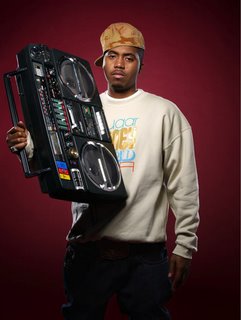
WHAT'S IT ALL WORTH?
I was watching the video for Nas's "Nas is Like". In his second verse he describes what he has reached financially in contrast to where he has come from.
He says in that verse, "what's it all worth / can't take it with you under this earth / rich men died and tried, but none of it worked / they just rob your grave..."
The question stayed with me, echoing, "what's it all worth?"
Monday, January 15, 2007

Radio Univers, 105.7FM, is located on the Legon campus of the University of Ghana. Legon, specifically East Legon, is an upper-middle class area, and is also just down the road from the prestigious East Airport Residential Area.
When you reach the entrance of the university, you pass by a long pond full of lily pads and swampy grasses. About 50 metres from the road is a tall, arching gate, painted white like the buildings found all over the campus. The road laid out before you is long, straight and on a slight gradation. You can see quite far up that road, which is full of department offices and student residences. There is nowhere that you can look with a diversity of vegetation; the crowning examples are the towering palm trees (taller than any building in eye shot) and broad baobab trees that take up as much space as some of the departmental offices.
Rather than go straight, to get to Radio Univers, you turn right from the gate. On the left is a large and open field of red dirt, with one big tree and some park benches. On the right side is a row of one-storey offices. The third of these buildings, in faded letters, is marked as the “Communication Studies Department”. Usually parked in front of the structure is a bright blue Volkswagen Beatle which is both uncommon and as weary looking as the letter.
Between buildings are pathways about six feet wide. Passing through this walkway, you find Radio Univers in the second opening. You pass underneath a tent that has a table and a photocopier underneath it. The next step brings you to a row of plants that ensure that you only use the step to climb up on the patio.
Before you will be three doors. The door on the left is an air-conditioned office portioned into two. This is where the few paid staff work. The two TVs in the room are always on. The internet available on one computer which is working most times, but is almost always being used.
The door to the right has a couch that no one sits on, a fridge full of water sachets, and a sink. The door at the centre is where the studio is. You open the door into the lobby, where there is airconditioning, a TV (usually on), and a radio playing the live sounds of the station. To the right is a set of windows that allow you to peer into the long on-air studio. To the left are a number of cubby-holes used as offices that house the production and the transmitter.
Much of the news is written under the tents outside, as weather is not too much of an issue at this time of year.
Across the street, just past the tree and the park benches is another large bulding. ON the ground floor is the station’s news room. This room is also airconditioned, and always has the TV and the radio on. There are two long tables and about 20 comfotrable wood and cushioned chairs. The walls are lined with piles of binded Ghanaian newspaper volumes dating back to the early nineties. Many of the piles reach eye level. The room also has six computers that don’t seem to work at all, and one that does.
The staff is made up of about five paid members: the accountant, the librarian, the news editor, the program director, and the administrator. You can tell them, as the walk with photo ID cards clipped to their shirts. The bulk of the work is actually done by the team of twenty or more station volunteers in operate, to some degree, in all functions of the station.
This is home for the next two months.
Part of living in Ghana is eating Ghanaian food. There is fufu which is a pounded starch (the looks sort of like a huge boiled dumpling) that can consist of a combination of yam, cassava or plantain. There is light soup and groundnut soup, kelewele, red red, waakye, kenke and teazet among other dishes.
One popular dish consists of banku, fried fish and pepe (a pepper sauce). To explain banku, you could say that it looks sort of like fufu, but is usually grey in colour, it is not as soft, and it is made from fermented corn.
The first time I tried banku was at a restaurant in Tamale. It was in a bowl filled with soup, and I thought that it was fufu. After about three bites, I began to feel sick. Every time that I caught the scent of the fermented corn in the air I would feel a little queezy.
I spent the next five months explaining to people that I enjoy Ghanaian food, but I can’t take banku. That was until last week.
While eating some rice and stew at the Ackerson house, Anita and Mr. Ackerson were eating a meal with banku. In recent weeks, I had been getting the feeling that I would like to enjoy eating banku. I decided that I would try it again. I tried it, and it was delicious. I traded my plate of rice for Anita’s plate of telapee (a well-liked kind of fish), pepe, and banku. I had it again for dinner last night.
I can now drop my story about why I don’t eat banku. Rather, I can tell the abridged version of how I came to like it.
There are so many things that make me smile on a day-to-day basis. Normal really is a relative term. That seems like a random comment, but you will get what I mean as you read this.
When you move through Accra and throughout the entire country, what you find is that images and slogans are everywhere – and often in places that you don’t expect to see them.
One very common business is that of signmakers. There shops are unmistakable, as they decorated with portraits of famous faces serving as a testimony of the quality of their work, though most of there business is for stenciled lettering.
One billboard that I just passed said:
“Avoiding AIDS is as easy as…
Abstain
Be Faithful
Condomise”
Some of these portraits include one Jean Claude Van Damme and another of Whoopi Goldberg sitting as a Queen adorned in gold (I later figured out that the film Sarifina is very popular in the country, and that is what she is most known for).

Some of the most popular faces you will see are:
George Bush
Osama Bin Laden
Bob Marley

Kwame Nkrumah
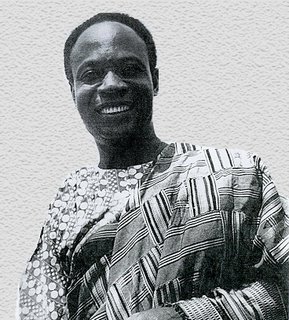
Kofi Annan
50 Cent
R. Kelly

Nelson Mandela
President Kufor
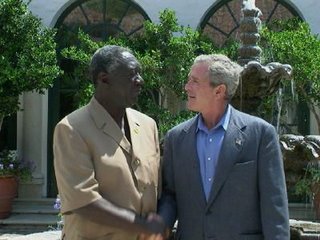
Eminem

Some more honourable mentions go to:
Snoop Dogg
Nelly
Former President J.J. Rawlings
Rocky Balboa (Sly Stone)
Allen Iverson
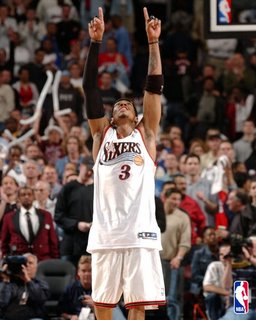
Music is also everywhere you go. I like to hold an annual BBQ in the summer at the house in Richmond Hill. Every year the police come by around 11pm warning us that they will shut us down if the music doesn’t go down by 11:30pm. That doesn’t happen here. There is music in the taxies and in the tro tro’s. Speakers blast at weddings and funeral. You constantly hear cell phone rings with songs as the rings and you can almost always see a music video on the local channels.
The music that Ghana is known for is Hi-Life and it’s contemporary incarnation Hip-Life. Aside from that, Reggae, Old School, Hip Hop, Country and love songs are what you hear most often.
Here are some of the top artists (sort of a national 'most played' Ipod list):
Akon
Sean Paul
Celene Dion
Wyclef Jean
Westlife
50 Cent
R. Kelly
James Blunt
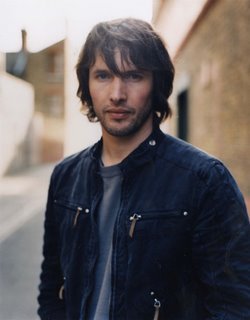
Beyonce
Shakira
Some more honourable mentions:
Lucky Dube
Kenny Rogers
Whitney Houston
Shaggy
Lionel Richie
While in the car with Ato, a Celene Dion song was on the radio. I was visibly enjoying the song.
Ato, noticing that, asked, “Do you like Celene Dion?”
That’s only a question that I’ve been asked in Ghana, and I’m not always sure how to answer. I do, but I have this deep sense that, as a Canadian, I’m not supposed to.
I told him, after hesitating, “yeah, she’s good. She makes nice songs. She can sing”.
“That’s a first”, he replied, “most Canadians don’t like her, they say she’s corny. I say, ‘what’s wrong with corny?’ Who is a better vocalist than Celene Dion?”

I know they are out there, but I was stumped. Don’t get me wrong, I’m not here saying Celene Dion is the world’s greatest female vocalist…why didn’t I say Yolanda Adams?...oh well…anyway, the point is…you have the point, I’m sure.
Another aspect that took my eye in Ghana was that most taxi’s and tro tro’s have a slogan on the back or front window. I also noticed that business names are made up of similar slogans.
There was one tro tro that I saw, that surprised me: across the front of the tro tro (hailing to the driver’s love for 50 Cent and Christianity) were the words G-Unit (50’s crew) with a picture of Michaelangelo’s painting of Jesus where the dash should be.

Another highlight was a restaurant called “God’s Time Fast Food”.
“Black Taliban Cell Phones and Repairs” was a bit concerning. For the most part though, the slogans refer to Jesus in the south of the country and Allah in the north of the country.
Many businesses can be seen such as “God Provides Construction”, “En-Shahallah Provisions”, and “Jesus is King Rasta Styling and Hair Care”.
Intuition is hearing the whisper of the Holy Spirit speaking into the intangible core of your being. When you hear it and follow it, beautiful alignments take place – often unexpectedly – right before your eyes. When you ignore it, or defy it, you end up looking at the mess you have made – or gotten yourself into – thinking, ‘I should have…’.
Today, while doing some research for a story on street children in Ghana, I used my time on the web to check up my squad (The Toronto Raptors) on The Toronto Star website. There was a story about Coach Sam Mitchell’s message to his team. Rather than read it, I copied it and saved it into the document I was using to collect all of my research. I would read it later on when I had some time. I had a feeling that there was something special in it for me.
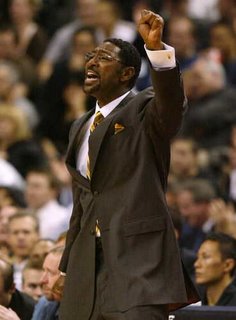
A bit later on, after organizing all of the research I collected, I decided to read the short article. In it I found a jewel, and confirmation of how trust worthy that inner-voice really is.
Here is a clip of the article:
His message was simple and to the point in an extended address after a shootaround in Milwaukee: These can be the best days of the Raptors' professional lives as long as they treat them with the importance they deserve.
Mitchell, who spent 13 years playing in the NBA and has been coaching in the league for four, is concerned that his players aren't truly aware of what's at stake at this point in the season; they may know these are big games, but might not know just how big they may ultimately be.
"Young guys, they just tend to just kind of go," he said. "What we're trying to do is keep them focused on what could be and we talk about that all the time.
"Veteran teams know to come in and look at that sheet before the game, look at the standings and understand the importance of every game. They've been through it. But young guys, in their mind, it's just another game. That's why veteran teams have such an edge, they understand. It's no fluke that teams that have been together the longest have been winning."
The message resonated with me. I read the words, “These can be the best days of the Raptors' professional lives as long as they treat them with the importance they deserve”, and I thought of where I am in my life…27 years old, working in Ghana, with a world of possibilities before me; these days can really be the best days of my life (though I also subscribe to the belief that life is supposed to be like good wine, getting better with age).
I then read his comment that “young guys kind of just go”, which was contrasted by the comment, “Veteran teams know to come in and look at that sheet before the game, look at the standings and understand the importance of every game”. And there I saw another parallel. It may seem early in the season, but today counts as much as any other day.
As for studying the stats and the standings, that for me is our goals, dreams, plans, and hopes: it is where we are at and where we need to be going. It is where the world is headed, where those who have gone before us have reached, and it is what our mentors have to offer.
Taking a comment team rookie Tony Parker summarized it all:
"I think he's just saying, `Seize the moment, this is the opportunity,'" said Parker. "Not to think about later, not to say, `We'll pick it up at a certain point, it's still the middle of the season.'"
THE AUTOBIOGRAPHY OF MALCOM X
The first time that I ever saw a copy of “The Autobiography of Malcom X”, I was 12 years old and I was at the house of a friend of my brother and I, Leslie. That was during a time when hats and t-shirts with the big “X” on were popular (along with Cross Colours, Travel Fox Kangools, Stitches and Major Damage). Leslie’s dad had seen the style and thought that his son should know what the “X” really meant.
I found out that part of the story later on. The first actual encounter with the book was from when we were listening to music in Leslie’s room. The book was sitting on his side table. The red lettering, the painted image and the famous name that I knew very little about drew me to the book. Picking it up, I felt as if I was holding something special; just by being in my hands and then skimming a few sentences, I rush came over me.
With the book in my hands, Leslie’s mother entered the room. Seeing the book in my hands, she asked me if I had read it. I wasn’t sure if I should be holding the book, like I had been caught touching an exhibit in a museum, though the cover was glossy and the pages virtually untouched. She then began to make comments about the “X” being so fashionable, and told me the story about Leslie’s dad buying the book and requiring that his son read it.
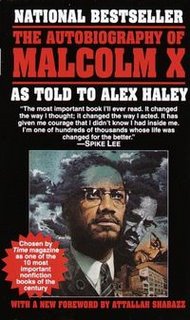
I did not read it for another five years, when I was in grade 12. In the meantime, I had seen the movie, seen clips of his speeches, and heard countless references to him in Hip Hop lyrics. The copy that I read was not Leslie’s, but from the basement of Mr. Huggins who collected stacks and stacks of books that would, for the most part, go unread. I, like many others, had found a book that spoke to me in his collection, and picked it up to read it.
Over a period of three months, I moved through the story of his life as told to and by Alex Haley. Most of my reading was on bus rides, mostly between Scarborough and Richmond Hill – there are places along that route that remind me of moments in his story.
That time of my life was marked by a major transition; I had moved from being on the verge of throwing away my future, to a cusp where the future possibilities were magnificent. That is why I related so story: Malcom Little, to Red, from prison, to Malcom X, and then El Hajj Malik El Shabaz. Finding out that the date of my baptism in 2000 was on the anniversary of his assasination added to this connection.
Seven years later, I was walking at night down the road leading from my home in Jisonayili to the road. I was walking with Nuri-Haque after we had just watched a tragic documentary about Marcus Garvey. Some how the conversation then touched on Malcom X, and I was surprised to hear that he had not seen the movie or read the book. I knew that he would love it. I told him that I would get someone to send a copy to Ghana.
The next day I sent out an email to about ten people who I thought might have a copy to send or an interest in sending one. Of the ten or so, it was Grant who jumped at the need with eagerness.
After sending him the mailing address, he confirmed that he would send a copy, and would be happy to do so.
About eight weeks later I went to the post office to pick up some mail, when I saw the brown paper wrapping tightly sealing the book. Grant’s name and address on the package confirmed the content of the package. After opening it for the customs officer to inspect, I carried it away from the post office glowing. I called Nuri-Haque right away to tell him that the book had arrived. Being that he had recently moved from Tamale to Kumasi for school, I went about sending it through the mail immediately.
Holding the glossy cover brought back so many memories. In the taxi home, I began to read the foreword written by Malcom’s daughter; the taste stirred a hunger for more, but I put the book down as I wanted it to arrive as a brand new gift.
For the next couple of weeks, I would get a phone call or a text message mentioning a portion of the book, or repeating a thank you to me – to send on to Grant also – for the book. One text message read: “The book is the greatest gift I have ever received in my life”. I passed on the sentiments to Grant, and added my own.
Grant’s account of having to wait until he had the funds to spare, and taking the trip to Knowledge Bookstore in Brampton to get the book added another layer of meaning for me.
Just before Christmas I left Tamale for Accra. Soon after that Nuri-Haque left Kumasi to visit Tamale. On his way into Tamale, with a few bags in hand, he left the book in a taxi. He called me to tell me of the incident and that it stung him inside. He had contacted the taxi station, and inquired as to whether the book had turned up. They had said that they would call him if one of the driver’s turned it in.
Speaking about the situation, I could relate to his own disappointment. He explained that he had read the book twice and was on a third read, afterwhich, he intended to give it to a friend of his.
“I just hope that the person who has it reads it, and is blessed by it. It would be tragic if someone just kept it, but didn’t read it”, he described.
“If I get it back, that would be great”.
A day later I got a text message: “God is good! I got the book back”.
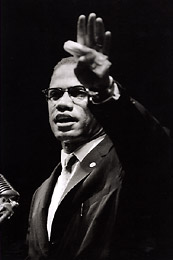
On Friday at Radio Univers, Franklyn and I had begun to work on out story about street children in Ghana. Around noon, I got a call from Razak (the GM of Radio Justice in Tamale) to say that he was headed over to the university. Franklyn wanted to go and take our lunch break, so we went to meet with Razak and headed for lunch.
As we were walking through the campus to Legon Hall to eat, we passed a woman sitting down with her baby. While the sight of a woman sitting at the side of the road with a baby is common, it is not a regular site on the campus. As we continued walking and talking, my attention stayed on her. By the time we reached the corner I stopped and I drew Franklyn’s attention to her.
As we had been walking by her, I had a sense of distress in my heart. Franklyn asked me if I wanted to go and speak with her. Together we walked back to see if she was okay. As we approached, we could see that she was crying.
She didn’t speak English, so I didn’t understand her, but Franklyn did.
Apparently she had left her money in a taxi, which was two-hundred thousand cedis (about $25 Canadian) that she had to start a business. She said that she was sitting there waiting for a taxi driver that said he was going to meet her there, but he had not shown up. As she talked she continued to cry. He child sat in her arms with a very indifferent look on his face. The baby was dressed in a yellow basketball jersey, some shorts and a few gold bracelets. The woman was in some traditional fabrics.
I didn’t have much money with me, but I offered her 10,000 cedis. Franklyn also added 10,000 cedis. We also told her that I would give her the 200,000 cedis on Monday.
As we left, she still had tears coming from her eyes.
Later that evening, after work, I headed out toward the road. Along the way I was thinking of the situation when I noticed two big vultures land in a tree, and I got a bad feeling. They seemed to be looking at me, and I got the feeling that I had been deceived by the woman. I continued to walk wondering, and then near the entrance to the university was a young boy standing there crying. I asked him what was wrong. He told me that his brother took his money, and said that he was waiting for someone who had not showed up. Right away, I could see that his crying was feigned. I told him that he would need to talk to his brother and I left.
The woman who had been standing there had not said anything to us. We had passed her by about 50 metres before we went back. Even after we left she still sat there discouraged. Of everything, that is what made me uncertain the most. We had given her 20,000 cedis, which by tro tro could get her to and from any destination in Accra. We also told her that she would get the money that she lost on Monday. Still, she sat there with tears still falling.
I don’t know if the boy at the entrance was a coincidence, or a common hustle. It was a sad thought that she might not be telling the truth (it wouldn’t be the first time). I was feeling taken advantage, and then I just laughed. It really wasn’t such a bad situation. I just thought to myself, ‘people’.
I have been mentioning the tro tro a lot since I got down to Accra, and I thought I would describe what the tro tro is really like to those who have never been in one. Up in Tamale shared taxi’s are much more common as the possible routes that you can took are not that many. In Accra, tro tro’s are the most common way of getting around, and are the most economical.
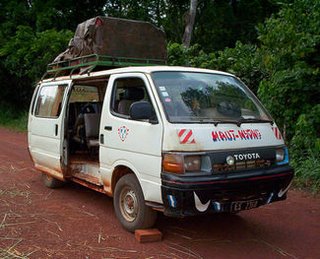
For a taxi ride that would cost 50,000 cedis to charter and about 15,000 cedis in shared taxies (which are hard to find and difficult to time), a tro tro will cost you 4000 cedis (and they are always there).
The word tro tro, I was told by Dr. Loco, originates from the era where the actual fare cost three pence in the British currency.
The actual vehicle is a long van (not quite a windstar and definitely not a bus). They can seat anywhere from 10 to 22 people. I was in one with 22 people yesterday. Each tro tro has one entrance. There are rows of seats, usually about four. In each row is one seat in the passenger side that folds up. To get in you climb through the door and duck and slide through the small space into your seat. Most people seem to like being in one of the front rows and near the window on the driver side. If you are going to the end of the line, it is best to be at the end of one of the rows so that you don’t have to maneuver yourself for other passengers to squeeze by you.
Tro tro’s can be caught at stations or along the roadside. They have no signs or particular markings to tell you where they are going. Instead, riders either find the spot where their usual tro tro parks or they rely on the collectors to call out where the vehicle is headed to.
I recall walking down Oxford Street back in July when I first came into contact with a tro tro in Ghana. As the vehicles passed, I would see men hanging out calling at those he was passing “cirq, cirq, cirq”. I now know that he was letting people know that the tro tro was going to Kwame Nkurmah Circle. You also might get a collector yelling out “Teishe”, “Dansoman”, “Accra”, “Rounabout” or “Junction”.
Though it is difficult for the first time rider, it comes to be quite simple to the seasoned rider.
When at the tro tro station, the vehicle sits and waits until it is full. You rarely ever get in a vehicle that will move until it is full. Once full, it is usually a tight fit. If someone smells sweet you may leave carrying their scent, the same can be true of sitting beside someone who decided not to shower that day.
Once the tro tro is moving, there is a collector that will begin to inquire how far you are going and will collect your fare. That same collector is also responsible for opening and closing the door, and often has to jog a few steps to catch the moving tro tro, and slides the door closed as the driver merges (or cuts) into traffic.
When you are in a car, tro tro drivers can be a nuisance as they drive on the shoulders, they cut people off (they don’t usually fear another dent), and they stop suddenly, often blocking traffic. While in a tro tro, I have enjoyed getting through traffic more quickly than usual as I don’t know many people who would drive the way they drive, though I have also felt concerned about our safety. Usually traffic moves too slowly in Accra to worry, but the odd time when the roads permit faster driving you might begin to feel how rickety the tro tro is or have crazy the driver is.
One thing I have to admit is that I really don’t know how tro tro drivers are regulated. By law, each vehicle has it’s own license requirements and tro tro owners have to pay an annual tax that comes with a sticker that is placed on the windshield. From what I have heard, many people who own the tro tro’s allow others to drive them for a daily fee.From the outset, when you sit in that seat, you really don’t know what kind of ride you are about to take. Some drivers are slow and responsible, some are reckless, some are thoughtful and some seem to have other things on their minds besides driving.
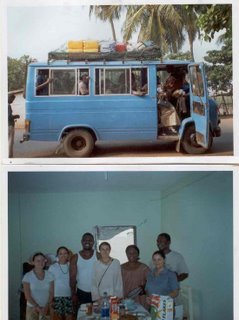
Note: I don't know who these people are...just wanted to use the photo of the tro-tro.
Thursday, January 11, 2007
It has almost been a month since I was last at Radio Justice, yet I am still connected to the place. Though I am still in Ghana, Accra is another world from Tamale. The bus ride there is almost as long as the flight from Canada, yet the price for the bus is about 1% of the price for the flight. That is a sidenote, as interesting as it may be.
The point is this. Earlier this week I was traveling through Accra with Ato, the JHR country director. He was mentioning that he would like me to have some involvement with the orientation on the next group that is coming in to work in Ghana. I was eager about the invitation as that transmission from those going-out to those coming-in can really aid in ensuring a great impact in the work being done.
While having that conversation, I got a call from Radio Justice. It was Layata. I had good news for her, that I would be returning to visit Tamale sooner than I had expected. She also had good news for me.
She let me know that “Freedom Thursdays”, the station’s human rights show, was doing very well and as vibrant as ever. She let me know that some guests that we were working on bringing in while I was still there were coming in this week and that they had interviewed the Director of the Tamale Teaching Hospital which was maligned in the annual report from the Commission on Human Rights and Administrative Justice.
When I left, there was uncertainty about who would continue the program as a few key people opposed having the secretary of the station, Layata, filling that role. TO my delight, the show has been the centre of attention as of late…in a good way.
I was also told that Somed, who was a volunteer with the station at the time, has impressed the management through the work that we were doing and is being offered a position at Radio Justice.
When I spoke to Somed this morning, he wanted to pass my contact information onto a woman that would be returning to the Univeristy of Ghana from Tamale – he thought that we could work together on some human rights journalism topics. When I told him that I would be coming to Tamale shortly I was touched by the warmth and excitement in his voice.
“We have a lot to talk about”, I told him.
He echoed my sentiment, “we have a lot to talk about”.
So here is the update. When I first found out where Tamale was, my first thoughts were regarding how far appeared to be from the ocean on the map. On the ground I found, that it really was as far as it seemed.
Since then, I spent about five months in the northern region, with a view venture to Accra (for the hospital, the Jay-Z concert and my birthday), to Kumasi (to meet up with my friend Pierette from Toronto in Ghana via Kenya, and to visit with my friend from Tamale, Nuri-Haque), to Cape Coast/ El Mina / Takaraodi (to see the slave castles with Pierette and Sebrina – also from Toronto, to visit Anita at Cape Coast Univiersity, and to visit the Ackerson’s family and Kary), to Bolgatanga (for a conference with Somed from Radio Justice), and Mole Park (with Adwoa, Idrissa and Kary – all from Canada). While that was quite a bit of traveling, I still spent a lot of time in Tamale.
In Tamale, I got to know the city quite well. I also got to know the basic greetings and words of Dagbani, though I didn’t speak it much due to my apprehension of people saying more to me and not knowing what they were saying. Looking back, I see that I really shouldn’t have been so apprehensive as that is probably the best way to learn. I was also there during Ramadan. Being that the area is mostly muslim, I got to really experience Ramadan in a way that affects the lives of everyone, whether you are fasting or not. I made a lot of friends in Tamale, and made great progress at Radio Justice – especially in the latter half of my placement. I enjoyed having no traffic, the passion of the people that I was working with (mainly Layata and Somed), and even playing ping pong and shooting pool with Janey (who was working for JHR at Diamond FM in Tamale). I was also adapting to the growingly dry and dusty atmosphere of the West African winter known as ‘the hamatan’. The hamatan is actually a weather system from the Sahara Desert which brings a dusty atmosphere, extremely dry air, a complete void of rain, heavy winds (often carrying dust), and a contrast of very hot days and very cold nights.
While in the very productive month of November, I began to feel ill again. After being quite sick to my stomach and feeling weak and feverish, I was admitted to a private hospital and treated for Malaria. That was the second hospitalization: the first being Typhoid Fever and Malaria (though in neither case did any tests turn up positive). After four days in the hospital, I was feeling much better and released.
When I was sick before, I was told by JHR that they would move me to Accra if I fell ill again in the north. I remembered this commitment, but I didn’t call them on it. Things were going very well in Tamale, and I could not see how being in Tamale would put my health more at risk than being in Accra in any way that I could bring to JHR. In the midst of this, I found out through a colleague of mine that was visiting from Accra that the Governor General of Canada was coming to Ghana and had invited everyone from JHR to meet her. That news was too good to be true, as her story is one that I have followed.
With that said, I wasn’t sure why I had not been told about this monumental event. Turned out that I was being excluded from the event for two reasons: for the time I missed while ill (though I was told that was not being held against me) and, more so, and impression that I was not committed to my job or deserving of such a privilege. That really hurt, and stirred me with a mixture of discouragement and motivation, frustration and inspiration.
After speaking at some length about the situation, their decision remained. I would be the only JHR staff in the country not invited to take part. I voiced my disagreement with that decision, but I focused and determined that I would continue to give all that I had to give. They had what I felt was an unfair impression of me, but I took the lesson of how important it is to cover yourself and resolved that I would turn this perspective around.
Within a week, two incredible events unfolded before me. One of those events was that the Governor General was coming to Tamale. Not only did I end up meeting her, but Somed and I were able to attend a lunch with her and her entourage, we were driven from the various events in a truck with members of the Ghana Intelligence Service (the presidential entourage was full of SUV’s, police escort, and an army tank trailing us).
I was also sent an email indicating that they would like me to remain in Accra after the Christmas break to begin working at the University of Ghana.
When I look back, this was the ideal design. I got to live in the north, I was able to travel a lot, I am missing the brunt of the intense hamatan season, and I get to work at the university. Having visited the campus a few times, I have imagined myself sitting and writing in the majestic library which is the largest in West Africa.
With that email, I had about a month to wrap-up all that I had been doing at Radio Justice. That had me busy. Five days a week I was in the office from about 8am to 8pm, as well as some hours on the weekends. The list of tasks completed was huge! I was satisfied with what I got done, part of which was ensuring continuity of what we were working on through the staff at the station and the next person to be coming to Radio Justice for JHR.
On my last weekend in the North, I hosted Adwoa, Idrissa and Kary at Mr. Fresh’s house. One of the main intentions that we had was to go on a walking safari through Mole Park, found in the Upper West of Ghana. That weekend was really nice. I think I would have felt more sadness had I felt that I was not coming back to Tamale at all – but I was planning to return in February. It was a blessing to have this move, as it prepared me for what I would be experiencing come March would my wrap-up would not be heading to Accra, but heading to Canada via London.
One problem that we ran into was that all of the bus tickets were sold out for a week due the upcoming Christmas holidays. Opting not to take another bus line which would drive overnight to Accra, and having the taxi we arranged fall through on us on the morning that we expected to depart, we ended up in a 2006 Nissan SUV that brought us safely into Accra. Though the driver was getting a little bit risky in his driving in the last stretch of the trip (which we were all very vocal about), we got to Accra and we were not exhausted.
I headed to Sakumono to stay with the Ackerson’s (my friend Melezia’s family) who were expecting me for the holidays and I had mangoes and smoked guinea fowl in hand.
Getting settled in Accra was great, as there were so many people to see and so many things to do (I still have not been able to see everyone!). In addition to all of the people already in the city, my friend and former co-worker at Canada Basketball was coming for Christmas and New Year’s.
A few highlights are as follows:
Hanging out with Bella, a friend of Layata
Living in a two bedroom apartment with ten people
A quiet Christmas eve watching The Sound of Music
Christmas Day with Tamara’s family (which included sushi, turkey, fried fish, and NFL Monday Night Football)
Coco Beach with Emmanuel, Micky (from New York) and his brother Roland (who lives downstairs)
Bojo Beach (that place is gorgeous!) a couple of times with a couple of groups of people
Lunch at Frankie’s and dinner at The Caribbean Restaurant
The 60th birthday party of the first African woman to be appointed as a judge for The Hague, international court in Switzerland
For New Year’s Eve I headed out to the area known as West Legon to go to church with Idrissa, Adwoa and Sandra. The service was great, and I enjoyed our seats which were actually in the courtyard outside. It surprised me when, at midnight, people began lighting and throwing fireworks in the church courtyard. The Pastor spoke up about it asking people not to throw them near the cars…no mention of throwing them near the people!
I also attended a basketball tournament for High School students. Wow, they sucked. They seemed to love the game, but they really couldn’t shoot. One game was 4-2 after twenty minutes. I’ve never seen so many airballs (even on freethrows). The highest score was 14-12. There was also an emcee battle which was far worse in terms of talent. In the malay, I got my phone picked from my pocket without even noticing it! One thing about the battle was this one big guy, who was nuts! He was screaming for one guy named Metalic. He ran laps around the crowd that was assembled on the edges of the basketball court, he shouted out rhymes, and even would even run through security (who were scared of him) and lifted Metalic onto his shoulder while he was rapping.
After some drama with talking to the guy who stole my phone by dialing my number, then the guy who bought my phone from the guy who stole it, I was able to get my same number back, minus all of the phone numbers that I hadn’t written down. I was also, thank God, given a phone to use until March by Tamara’s Dad.
The lesson…pay even more attention and don’t let my phone and my calls distract me from having God first.
After that whole situation, Tamara and I headed off to Busua beach (just west of Cape Coast) to do surfing lessons. We had a villa on the beach, bonfires at night, lobster dinner, fruits and pancakes for breakfast, and we both got up on some waves. I learned to surf in Ghana. That was one thing I hadn’t expected, though I recall see some Sengelese people surfing when I was there in 2001.
Most recently, I began my placement at Radio Univers, the campus station at the University of Ghana. The grounds there are extremely beautiful. The environment is gorgeous, the hilltop view is great, and the buildings have a very historical feel. While the students are not all back yet from their holidays, I am excited about being in the academic environment. I have met most of the staff, and it’s now about getting to know them and getting to work.
I am three-fourths of the way through an incredibly blessed life changing experience. At one point I could hardly imagine visiting Ghana, and now I can’t imagine not coming back.
With that said, my exit from the country on March 15th has both the hint of sadness and excitement. Sadness over leaving this place that has been so good to me. Sadness over leaving all of the people that I have come to meet here. Excitement at all that is before me. Excitement of seeing the many people that I have come to love and appreciate even more than what was already so powerful. I am excited at how everything will look through an expanded and deepened perspective.
I will be here for the celebrations of the 50th Anniversary of Ghana’s Independence (the first on the continent), then I will go for my first visit ever to England for two weeks. After that, I will head back to Toronto. Wow.
I am doing my best to enjoy every moment to the fullest.
